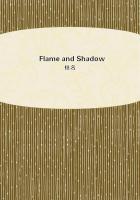BY civil laws,I understand the laws that men are therefore bound to observe,because they are members,not of this or that Commonwealth in particular,but of a Commonwealth.For the knowledge of particular laws belongeth to them that profess the study of the laws of their several countries;but the knowledge of civil law in general,to any man.The ancient law of Rome was called their civil law,from the word civitas,which signifies a Commonwealth:and those countries which,having been under the Roman Empire and governed by that law,retain still such part thereof as they think fit,call that part the civil law to distinguish it from the rest of their own civil laws.But that is not it I intend to speak of here;my design being not to show what is law here and there,but what is law;as Plato,Aristotle,Cicero,and diverse others have done,without taking upon them the profession of the study of the law.
And first it is manifest that law in general is not counsel,but command;nor a command of any man to any man,but only of him whose command is addressed to one formerly obliged to obey him.And as for civil law,it addeth only the name of the person commanding,which is persona civitatis,the person of the Commonwealth.
Which considered,I define civil law in this manner.Civil law is to every subject those rules which the Commonwealth hath commanded him,by word,writing,or other sufficient sign of the will,to make use of for the distinction of right and wrong;that is to say,of that is contrary and what is not contrary to the rule.
In which definition there is nothing that is that is not at first sight evident.For every man seeth that some laws are addressed to all the subjects in general;some to particular provinces;some to particular vocations;and some to particular men;and are therefore laws to every of those to whom the command is directed,and to none else.As also,that laws are the rules of just and unjust,nothing being reputed unjust that is not contrary to some law.Likewise,that none can make laws but the Commonwealth,because our subjection is to the Commonwealth only;and that commands are to be signified by sufficient signs,because a man knows not otherwise how to obey them.And therefore,whatsoever can from this definition by necessary consequence be deduced,ought to be acknowledged for truth.Now I deduce from it this that followeth.
1.The legislator in all Commonwealths is only the sovereign,be he one man,as in a monarchy,or one assembly of men,as in a democracy or aristocracy.For the legislator is he that maketh the law.And the Commonwealth only prescribes and commandeth the observation of those rules which we call law:therefore the Commonwealth is the legislator.But the Commonwealth is no person,nor has capacity to do anything but by the representative,that is,the sovereign;and therefore the sovereign is the sole legislator.For the same reason,none can abrogate a law made,but the sovereign,because a law is not abrogated but by another law that forbiddeth it to be put in execution.
2.The sovereign of a Commonwealth,be it an assembly or one man,is not subject to the civil laws.For having power to make and repeal laws,he may,when he pleaseth,free himself from that subjection by repealing those laws that trouble him,and ****** of new;and consequently he was free before.For he is free that can be free when he will:nor is it possible for any person to be bound to himself,because he that can bind can release;and therefore he that is bound to himself only is not bound.
3.When long use obtaineth the authority of a law,it is not the length of time that maketh the authority,but the will of the sovereign signified by his silence (for silence is sometimes an signified by his silence (for silence is sometimes an argument of consent);and it is no longer law,than the sovereign shall be silent therein.And therefore if the sovereign shall have a question of right grounded,not upon his present will,but upon the laws formerly made,the length of time shall bring no prejudice to his right:but the question shall be judged by equity.For many unjust actions and unjust sentences go uncontrolled a longer time than any man can remember.And our lawyers account no customs law but such as reasonable,and that evil customs are to be abolished:but the judgement of what is reasonable,and of what is to be abolished,belonged to him that maketh the law,which is the sovereign assembly or monarch.















